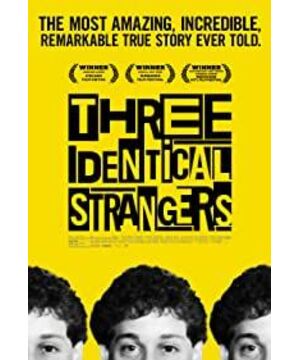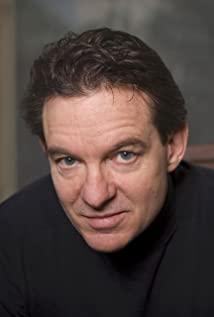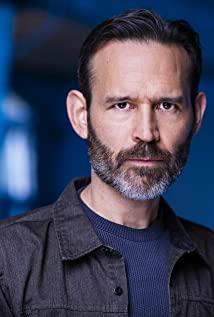In fact, it's a documentary with compelling storytelling.
The reenactment of the opening scene, interviews, and old photos are intertwined and narrated, with twists and turns, and the rhythm is pushed very accurately. Announcement of the psychological experiment that year, interviewing many parties, interlocked, and doubtful, if the experiment was exposed in that year, I could watch it for another three hours. Later, although the narrative of "things took a turn for the worse" was dramatic, it still maintained respect for the dead. Until Eddy committed suicide, the film mentioned that there were many mentally ill patients among the subjects of the experiment, and many of their mothers had a history of mental illness - but are the proportion of them suffering from mental illnesses higher than the general population? The video didn't mention it - I thought it would be about the adoptive parents' right to know the mother's medical history, or ask a psychologist to talk about whether the previously mentioned separation anxiety in infancy would have a long-term impact on the individual, but I didn't expect it , the film changed the conversation and began to push the climax to nature vs nurture.
Several relatives corroborated that Eddy's adoptive father was strict with his son, and Eddy and his adoptive father had a bad relationship. Although one of the triplets made up for "it's not Eddy's father's fault, he's doing his best to raise Eddy", but then the editor David said, "My upbringing environment definitely played a decisive role in me", climax Inexplicably pushed to the unanimous opinion of the interviewees that "nurture is more important than nature", it seems that Eddy's bipolar disorder and suicide are inseparable from his adoptive father. The film doesn't reveal any details of Eddy's condition, but it holds on to nature/nurture after Eddy's death. Such editing and connection are unfair to Eddy's adoptive father.
The meaning of Nurture is not only "raising a family", but also covers all aspects of society that individuals come into contact with in their growth. Originally, this film did not need to analyze the reasons for Eddy's bipolar disorder, and the crew also wanted to be careful not to let the film run into the bottomless pit of "Why Eddy committed suicide". This question is never raised in the whole film, only Bobby keeps saying: "I keep thinking, why is it him and not me, why is it him and not me, and I would even be willing to replace him. But I don't understand." This kind of The avoidance is both out of respect and because we, as viewers, all want to attribute tragedies. As a result, this tendency is unavoidable, and the film still biases the cause of Eddy's death.
Instead, why not talk about it? The psychology community is still studying the causes and treatments of mental illnesses such as bipolar disorder. Drugs and behavioral therapy are often two-pronged, and the nature/nurture debate is not an arbitrary one-size-fits-all. Or ask a professor of psychology to talk about why the psychology field in the 1950s and 1960s gave birth to such experiments. The cognitive history of scientific ethics in the United States does not need to mention biochemical experiments, and the understanding of experimental ethics in social science is gradually formed. of. Is the well-known Stanford Prison Experiment or the Milgram Experiment humane?
Or, since the film also mentioned that "the triplets deliberately emphasized the similarities with each other", why not talk about the differences in the eyes of the triplets? Even what genetics currently holds about the similarities and differences exhibited by multiple births is a question worth exploring. Why end up in nature vs nurture inexplicably? It's no use telling a good story, halved the star.
View more about Three Identical Strangers reviews











